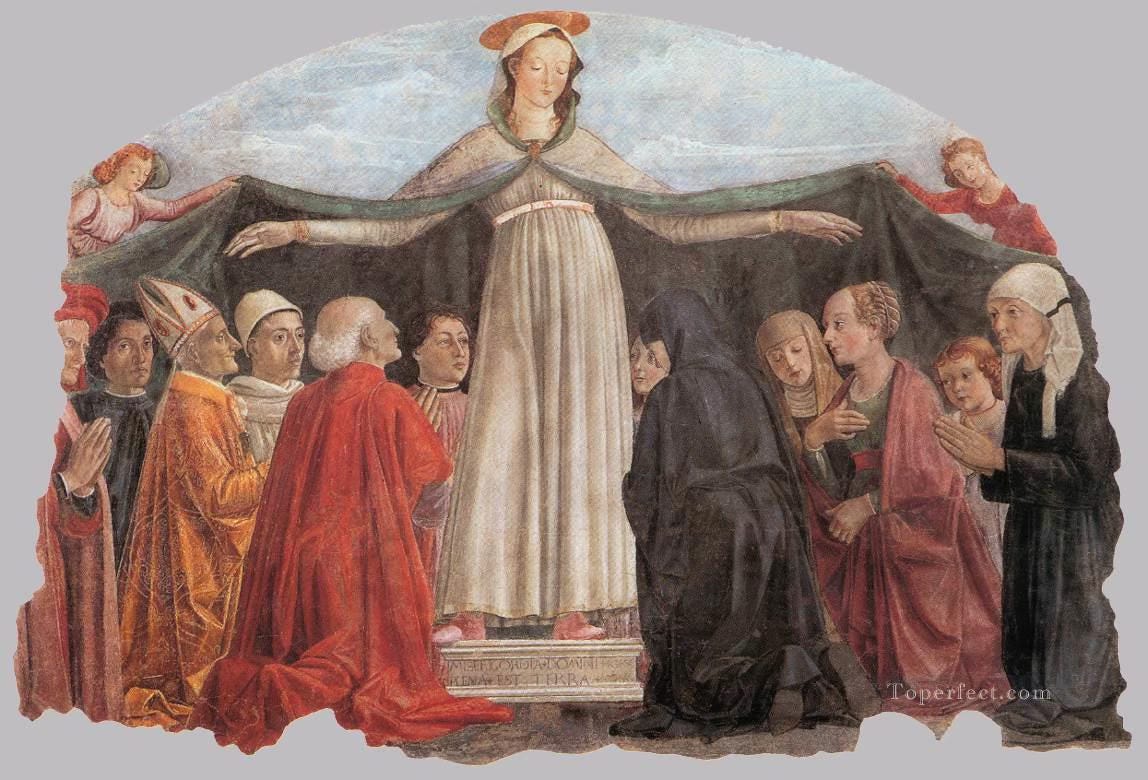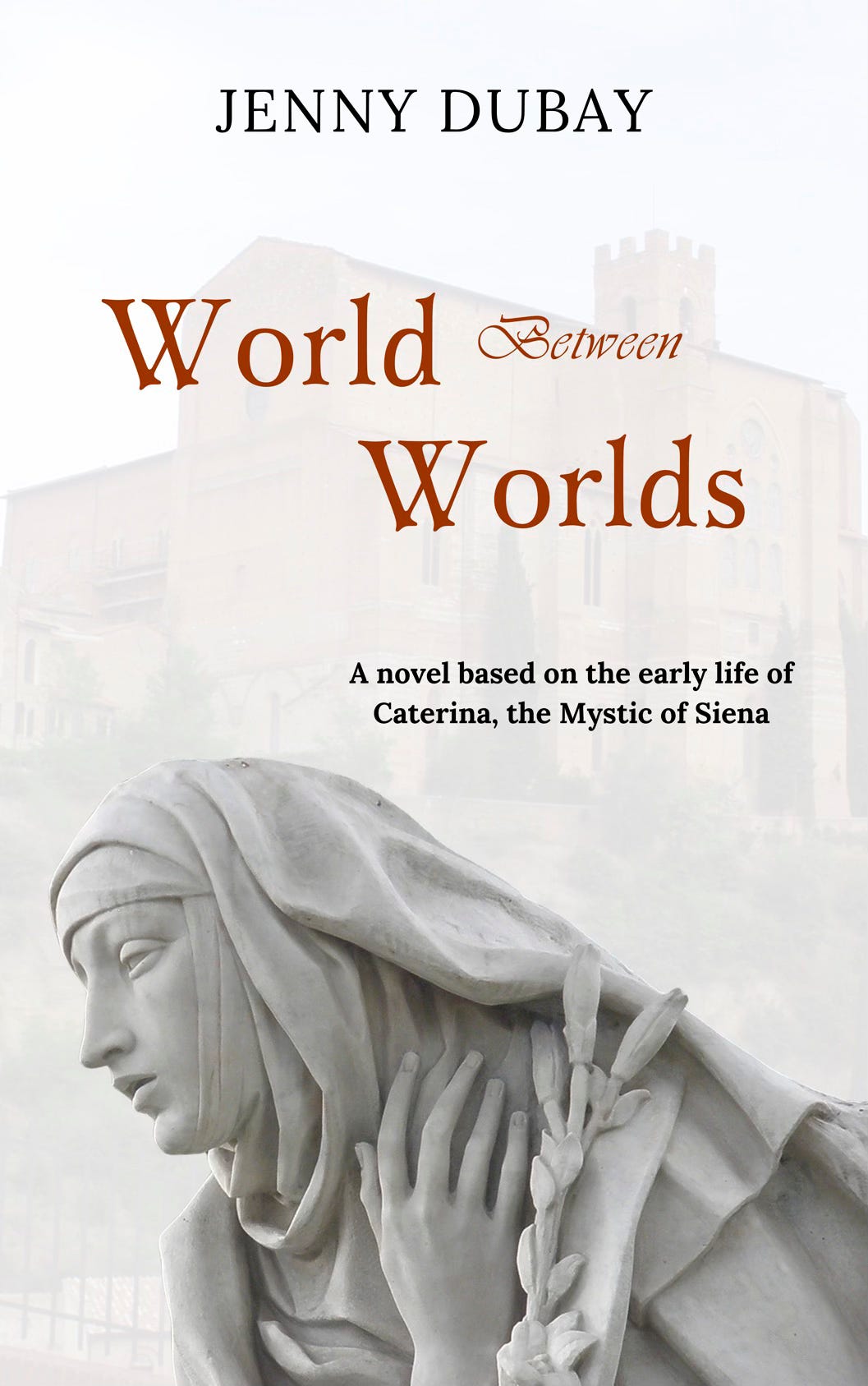The Healing Power of Divine Mercy
Hope and healing in a tumultuous world can be found in Divine Mercy.
This famous quote from Julian of Norwich is beautiful, yet it can be difficult to believe during times when we’re overwhelmed with emotional chaos and compounding trauma. When one thing after another hits us with ferocity, how can we cling to the truth that all things work for good for those who love God (Rom 8:28)?
We can start answering that question with a brief yet fun history lesson.
From the outset, the fourteenth century was an era of tragedy and trauma.
In 1303, at the command of King Philip of France, 86-year-old Pope Boniface VIII was kidnapped. For three days he was abused by the agents of France; he soon died as a result of the shock and mistreatment. The next pope was elected due to the unyielding influence of King Philip, and out of fear Clement V remained in France rather than returning the Holy See to Rome. This began the “Babylonian Captivity,” with the popes residing in Avignon for the next 75 years.
Christendom was shocked by this religious upheaval, but that wasn’t all they had to worry about. The weather had taken a a turn for the worse; temperatures dropped, ushering in what is now called the “little ice age”—a cooling trend that didn’t begin to correct itself until the mid-nineteenth century. Crops failed due to lack of nourishing warmth and too much rain, resulting in famine and malnourishment. Floods, earthquakes, and a turbulent war between England and France caused people to wonder if they’d entered the days of the Apocalypse.
This suspicion only deepened when the Great Pestilence—now more commonly known as the Black Death—hit the entire known world from 1346 to 1351. Malnourished citizens easily succumbed to the ravishing disease, reducing the population of many countries by half. The plague continued to return throughout the course of the century, further traumatizing the population.
Yet despite such devastation—or likely because of it—God sent messengers of hope to spread His message of Divine Mercy to all the known world. Two such messengers of mercy were Julian of Norwich and St. Catherine (Caterina) of Siena.
Thought to have been born around 1342, it’s believed that Julian was a widow who had lived through personal loss, plague, war and civil unrest. Even so she remained an optimistic theologian, secluding herself in prayer and meditation as an anchorite of St. Julian’s Church in Norwich, England. Despite the tragedy and personal illness surrounding her life she heard God reassure her, “I may make all things well, I can make all things well, and I shall make a things well; and you shall see for yourself that all manner of thing shall be well.”
St. Caterina was born in 1347—just one year before the Pestilence ravaged her home city of Siena, Italy. In 1374, when the disease again struck with nearly the same ferocity as thirty years prior, she lost nieces, nephews, siblings and beloved friends to the black specter.
Her diligence in nursing the sick and dying was heroic, and she miraculously never caught the disease herself. To help ease her grief, God continued to reassure Caterina of His immense mercy. In a similar message of hope and healing He told her, “I can, and want to, and will help whoever wants My help.”
What does this message have to do with healing from the trauma life tends to throw at us? It reminds us that even in our darkest times, when all seems hopeless, we have a Divine reassurance that eventually, within God’s timing, all shall be well.
God also told Caterina,
Know that my mercy toward you is incomparably more than you can see, because your sight is imperfect and limited, and my mercy is perfect and without limit.
Our Lord never stops reminding us of His incomparable mercy. Seven hundred years after the lives of Julian and Caterina, Jesus entrusted an obscure Polish nun to continue His message, inspiring St. Faustina to promote a devotion to Divine Mercy that is ever more vibrant today. It’s a message we need to keep close to our hearts and buried deep within our souls, especially during dark times of desperation and despair.
God’s mercy is so profound, so complete, so enormous that we could never contain it all.
God’s incomparable Divine Mercy is a message for all of us as we continue to heal from personal trauma and chaos. During times of struggle, when things seem the darkest and most hopeless, let us remember God’s promise:
I can and want to and will help whoever wants my help. All shall be well, and all manner of thing will be well.
We may not know how all will be well, and the divine promise may seem unrealistic if we’re immersed in despair, yet despair is a trap that doesn’t come from God. During those times we need to pray for the grace to recall that Divine promises never fall short—in fact, they’re always more magnificent than we can even comprehend. Blessings abound when we reach out for our Lord’s help.
“It is God’s will that we should know in general that all will be well, but it’s not God’s will that we should know how all shall be well, except as it applies to us for the present.”
(Julian of Norwich)
Currently on Sale!
My novel, World Between Worlds, tells the amazing story of one of the most dynamic personalities of the Middle Ages, Catherine of Siena. Set in the tumultuous fourteenth century, World Between Worlds takes readers on a journey across the landscape of medieval Tuscany, through the eyes of a mystic who is entangled in political chaos, social upheaval, and spiritual awakening.
On sale now! To purchase a signed copy, click here.
If you prefer to purchase on Amazon, click here (affiliate link).





Key qualifier there-God will help people who want His help! We can fall into a stare in which we reject God's help!
I'm a fan of Julian of Norwich but I should gently point out she isn't a canonised saint! Perhaps should be but probably never will since so little is known about her.